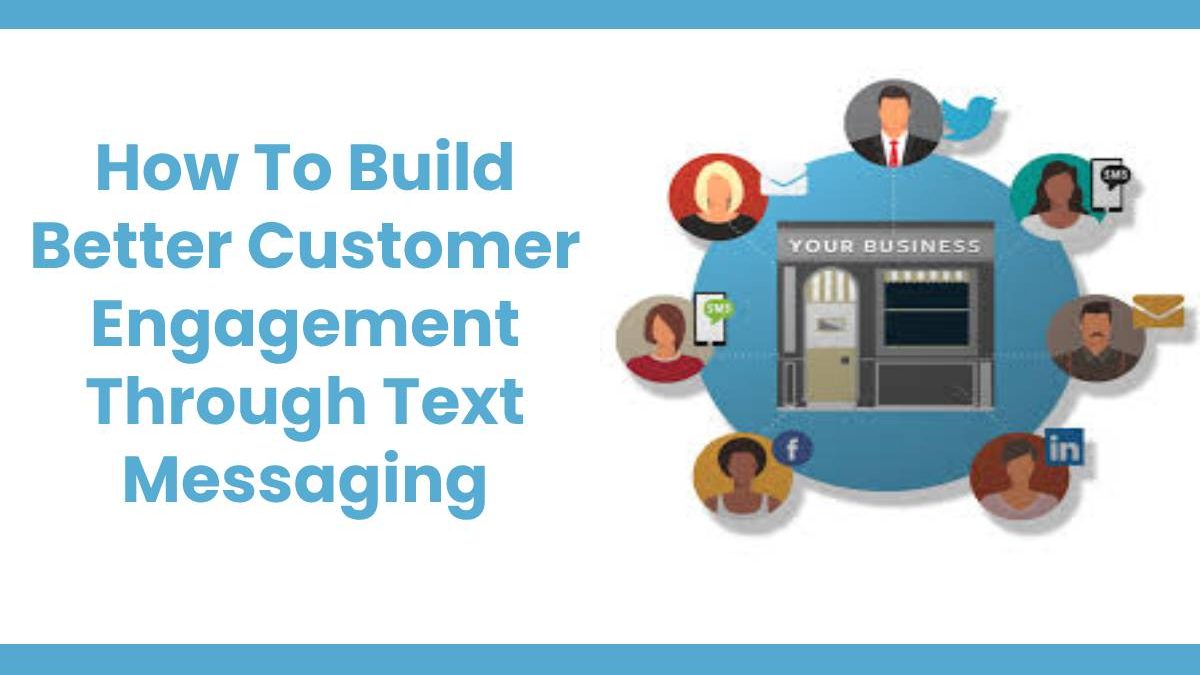Customer Engagement Through Text Messaging
Customer engagement is an integral part of building a successful bu siness. It’s important for creating brand loyalty and boosting sales. And the good news is there are so many ways to engage with customers, through social media, content creation, email marketing and SMS.
Despite many considering SMS to be an outdated approach in the era of the internet, this could not be further from the truth. In fact, a study from 99 firms revealed that the open rates for text message marketing campaigns can be as high as 98%, compared to the 20% open rate for email.
What’s more, Smart Insights found that SMS response rates are 209% higher than that of email, Facebook or phone calls.
These are just two reasons your business cannot afford to neglect your SMS marketing strategy.
In this guide, we’re going to take a look at how your business and marketing team can build better customer engagement through text messaging.
Table of Contents
The rules for engaging with customers via text message
Before we look at SMS engagement strategies, we thought it was a good idea to take a look over some of the key rules for sending text messages to customers. So before you begin your marketing campaign, you need to make sure you’ve ticked the following boxes:
- Making sure you get explicit consent from the customer first before sending them any communications whether text message or email
- Making sure to include an easy opt-out option
- Ensuring that all messages are clear and concise – and avoid the use of abbreviations or slang
- Making sure all messages offer clear value
- Including a call to action (CTA) where necessary
Using these guidelines you’ll be able to create an SMS marketing campaign that offers real value to the customer and is likely to yield the best results. You can also make sure you’re following all the rules and legalities such as gaining consent.
Now we’ve covered that, let’s take a look at the ways in which you can build better customer engagement through text messaging.
-
Send messages for sales and promotions
One of the key reasons you might want to send text messages to customers is to notify them of upcoming or ongoing sales and promotions. As mentioned above, SMS tends to receive a higher open and response rate therefore this can be a great technique for boosting sales.
In particular, if you run loyalty campaigns, it can be a great way to let customers know their loyalty is paying off by sending them exclusive savings or offers.
Just be careful not to bombard customers with sales content all the time as this can become frustrating. Remember, you want to treat every individual as if they’re a valued customer not just another number or another sale, so be sparing but targeted with your sales messages.
-
Solicit feedback using surveys and polls
Feedback is a hugely important part of the customer engagement experience for a number of reasons. As such, you can use text messaging to solicit feedback on goods or services.
Firstly, it allows customers to have their say and to feel like you’re genuinely interested in their experience rather than just taking their money. Not to mention it is a great way to continually improve your business, customer service and offerings based on their feedback.
You can also use text messages to ask customers to leave reviews on your website or on other important sites like Trust Pilot. Or, if you’re simply looking for a quick response on a particular product or subject matter, polls can be a time-efficient tool for both businesses and customers.
There are a number of ways you can ask your customers for feedback and there are special tools out there that allow you to create and share surveys or polls via SMS.
-
Use text messages to send helpful reminders or information
Depending on the nature of your goods or services, the reminders you’re sending to your customers will vary. However, sending reminders or important information by text message can significantly enhance the customer experience. Not to mention it can have equally as helpful results for your business.
Some examples of the types of reminders or information you might be sending include:
- Delivery or collection notifications – letting customers know when they can collect their items in-store or when their items will be delivered. If collecting in store, you can include their reference or pickup number
- Appointment reminders – if you run a service-orientated business such as a beauticians, hairdressers, dentists, etc. sending appointment reminders is helpful for customers (especially if they’ve booked way in advance) and can also reduce the number of no-shows
- Reminders that a particular sale or time-sensitive offer is about to run out – that way they can make the most of it before it does
You might wish to send out several reminders along the customer journey, perhaps when they first place an order or book an appointment and then closer to the delivery date or appointment day just to keep them in the loop.
-
Offer recommendations and upselling based on purchases
A softer but often more appreciated sales technique is sending text messages to customers offering recommendations and trying to upsell to them. For example, you could send offers or promotions based on products they buy regularly to help them save money and to encourage them to continue to shop with you int he future.
Alternatively, you could send recommendations for goods or services based on their past buying habits. This can be really valuable to the customer helping them to discover new and potentially useful goods. Plus, it’s a great way to boost your sales.
-
Send a simple thank you text message
Lastly, a simple follow up email can be a great way to end the customer journey. Whether they’ve made a purchase with your business or recently used your services, a thank you text message can help to show your appreciation.
You could also use this message to ask for feedback as mentioned earlier or to find out if they have any queries or if there is anything more your business can do for them.
This can be a more personalised approach and shows the customer you value them. This can lead to a more loyal customer base and to people returning to your business in the future.
Related posts
Sidebar
Recent Posts
The Best Forex Brokers for Beginners
Since COVID-19 first popped up, interest in the forex market has increased dramatically. Knowing how to get involved with minimal…
Maximizing Success: The Symbiosis of Dedicated Software Development Teams and Product Design Services
The Symbiosis of Dedicated Software Development Teams and Product Design Services In the rapidly evolving landscape of technology, businesses aiming…



